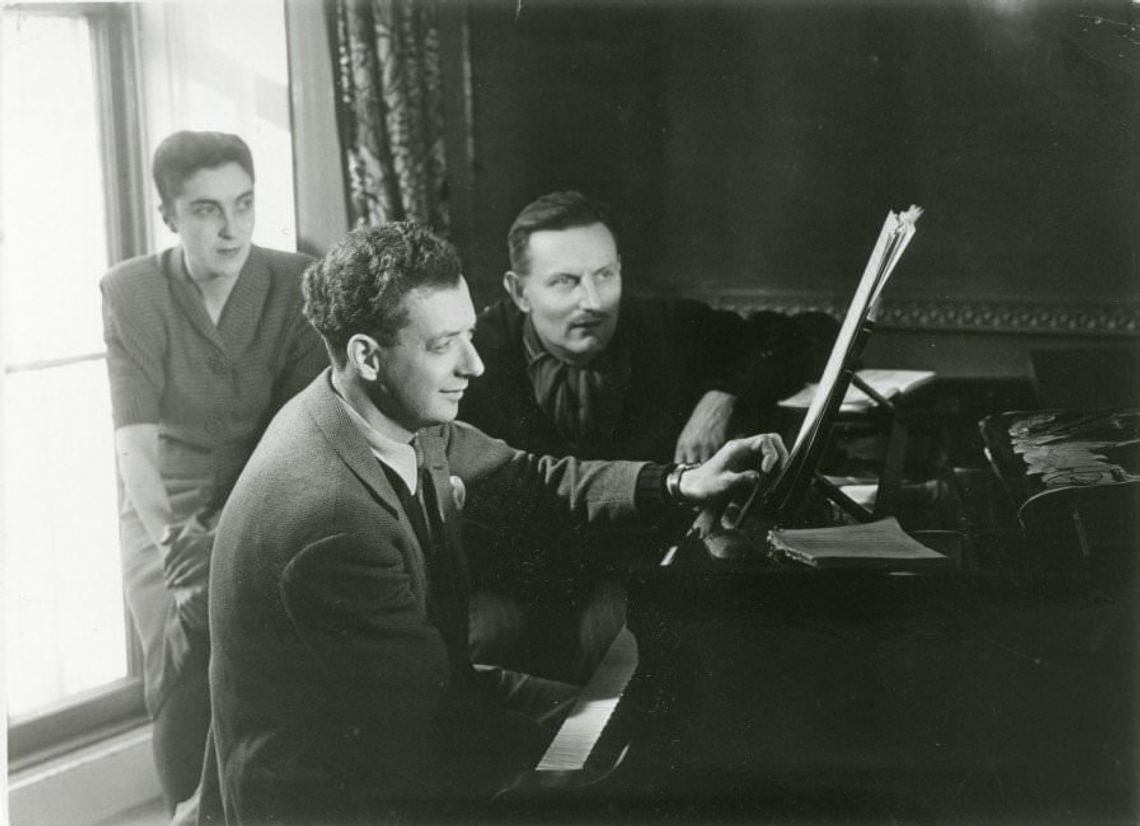The Beggar’s Opera
Ballad-Opera by John Gay (duration 1 hour 50 minutes)
Libretto by John Gay with additional dialogue by Tyrone Guthrie
A quick introduction
When was it written?
Dec 1947 - May 1948. The first performance was on 24 May 1948 at the Arts Theatre, Cambridge.
What’s it about?
A tale of highwaymen and rogues set (and originally written) in the eighteenth century. It is full of betrayals and love triangles, revolving around the villainous Captain Macheath.
What does it sound like?
As this is an arrangement of a much earlier opera, the music sounds very different to most of Britten’s other works. The opera is a series of popular ballads from the time, using the original melodies and with spoken sections in between. Britten uses a small orchestra of a similar size to that in The Rape of Lucretia and Albert Herring.
Listen
Did you know?
1. This is one of a number of ‘realizations’, or arrangements, Britten made of music by much earlier composers. He also realized works by Purcell (including his opera Dido and Aeneas), Handel, and John Blow among others.
2. John Gay’s original stagework (first performed in 1728) was a ‘ballad opera’: a mixture of popular songs and ballads from England, Ireland, Scotland and France, as well as tunes by other composers of his period.
3. Britten used a very threadbare 1923 edition of Gay’s opera to make his arrangement.
4. Pears performed the role of Macheath in the first production, but later on a version for baritone was made.
5. Britten made some of his arrangement on trains between Milan and Zurich during a recital tour with Pears in 1948. He then only had a few weeks to complete it before the premiere in May that year.
The plot
Time and Place: London, early 18th century
Act 1. At the den of Peachum, a receiver of stolen goods, he and his wife ponder the value of various rogues in their employ before turning their attention to the highwayman Captain Macheath, on whom their daughter Polly dotes. WHen Mrs Peachum and her husband charge her with having married Macheath she is forced to admit it. They console themselves with the prospect that he is likely to be impeached soon for his activities (by them, if no-one else) and Polly left a wealthy widow. She, however, is horrified, and confesses all to the Captain: they decide to part temporarily for safety’s sake. At a tavern near Newgate Prison, a criminal gang assembles with a view to hijacking a coach on Hampstead Heath. Macheath warms them he must lie low for a while. With the others gone, a bevy of loose women enters to entertain him though, primed by Peachum, they are actually there to betray Macheath, who is handed over to the constables as the act ends.
Act 2. In Newgate, Macheath offers to marry the jailer’s pregnant daughter, Lucy Lockit, but her father and Peachum have already hatched a scheme to share the reward due on his execution. The arrival of Polly with her alternative marital claims confuses the issue further: the two women come close to blows.
Act 3. Eventually, Lucy manages to free Macheath with some spare keys, but he is later recaptured and sentenced to death. Having failed to poison Polly, Lucy and her former rival plead with their fathers to get their husband off, but to no avail. Finally, the impresario of the opera, the Beggar, is prevailed upon to grant a reprieve.
In The Archive

Britten with producer, Tyrone Guthrie, sitting on his left, and the designer Tania Moiseiwitsch behind.
For information about performing forces and where to buy/hire a score please visit the publisher pages.